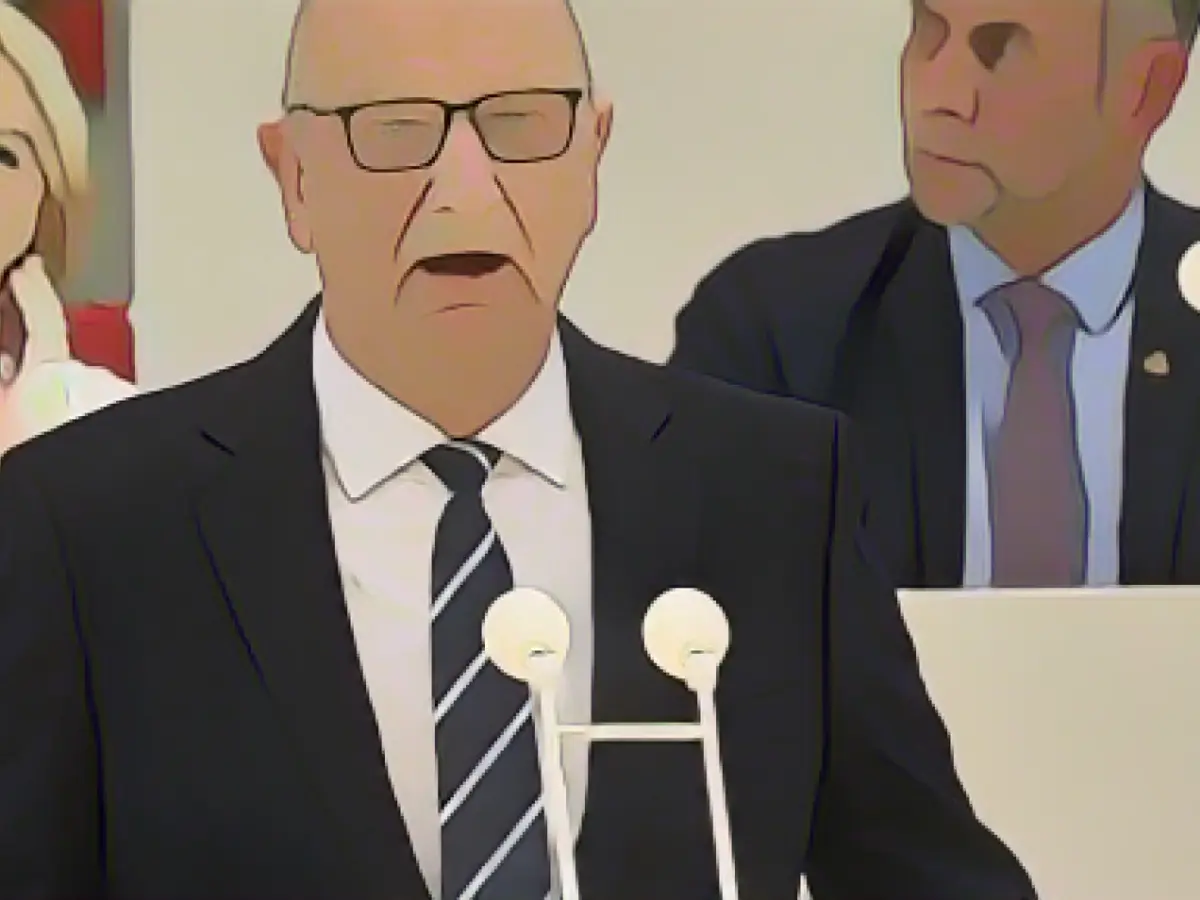Parliament Chronicles: Woidke Crusades for Aid Package: Debate on Debt Limit
Brandenburg's Chief Executive Dietmar Woidke (SPD) voiced his support for incurring additional debt to aid citizens, municipalities, and the economy in the state parliament's gathering. Amidst lively discussions, Woidke insisted on the necessity of a strong state capable of supporting its citizens during trying times, offering solace and hope instead of instilling fear of the future.
The gathering highlighted the consequences of the Federal Constitutional Court's budget ruling on the Brandenburg aid package, which has prompted the coalition to seek a two billion euro debt commitment. To achieve this, the state parliament will once again declare a state of emergency in 2024, citing the aftermath of the Russian attack on Ukraine and skyrocketing inflation as justification.
Woidke's Brandenburg package includes 100 million euros for supporting families, 700 million euros for local authorities, 190 million euros for hospitals, and 90 million euros for the economy. Emphasizing solidarity and unity, Woidke underscored the significance of the package in times of uncertainty.
On the contrary, Hans-Christoph Berndt, the AfD parliamentary group leader, scoffed at the state of emergency declaration, baffled that Brandenburg reported a stellar economic growth rate in 2023. Moreover, he accused the coalition of attempting to bypass the constitution with their budget plans.
The SPD parliamentary group leader Daniel Keller advocated for a sweeping reform of the debt limit, citing the debt limit's history of repeated violation and the annual requirement for an emergency declaration by nearly all federal states. He argued that the debt limit, which has become a perpetual exemption, has yet to prove its effectiveness in practice.
In contrast, Sebastian Walter, the parliamentary group leader of the Left Party faction, advocated for scrapping the debt limit altogether, claiming that it hinders investments in the future. The CDU parliamentary group leader Jan Redmann vehemently defended the debt limit, fearing an endless mountain of debt without its constraints, while supporting only moderate reforms. Benjamin Raschke, the Green parliamentary group leader, also called for a revision of the debt limit, citing the need for an intergenerational approach.
MP Péter Vida, a member of the BVB/Freie Wähler, accused the coalition of facing not financial but political turmoil. He argued that the SPD's 30 years of state politics in Brandenburg had created educational, health care, and traffic infrastructure crises. Citing biblical wisdom, he urged the coalition to save during prosperous times for leaner days ahead.
In summary, the Brandenburg state parliament discussion revolved around taking on two billion euros of debt to support local and economic growth along with the reform or abolition of the current debt limit. The debate featured arguments from various political factions, each voicing their concerns and priorities, including the need for fiscal responsibility, investments in the future, and addressing pressing social issues.
Read Also:
Key Points to Remember:
- Dietmar Woidke, the SPD's Chief Executive in Brandenburg, urged the use of debt to support citizens, municipalities, and the economy.
- The state parliament is set to declare an emergency situation for 2024 due to the consequences of Russia's Ukraine attack and high inflation, requiring a two billion euro debt commitment.
- The Brandenburg package includes backing for families and essential services, including education, healthcare, and infrastructure. However, the AfD parliamentary group leader Hans-Christoph Berndt criticized this approach.
- The SPD parliamentary group leader Daniel Keller called for a reform of the debt limit, citing its frequent violation and the annual declaration of emergencies. The Left Party faction's parliamentary group leader Sebastian Walter proposed scrapping the debt limit altogether, while the CDU and Green factions advocated for moderate reforms.
- The debate can be traced back to the German federal budget, where multiple political parties have contrasting views on the debt limit and the need for fiscal responsibility versus empowering investments in well-being and growth.








